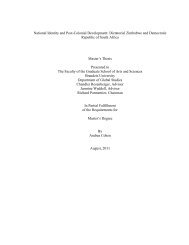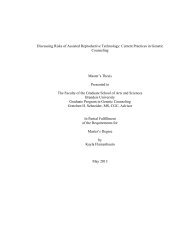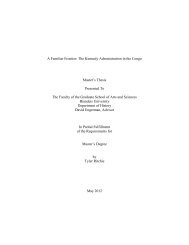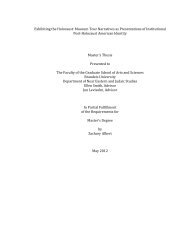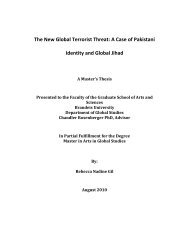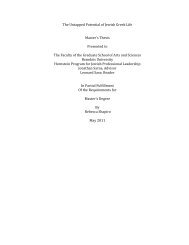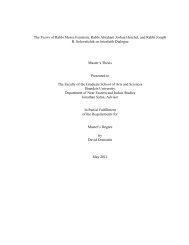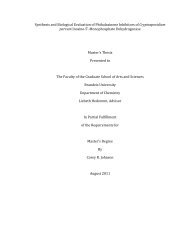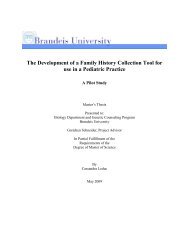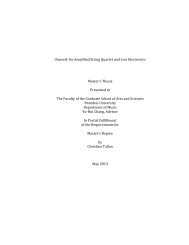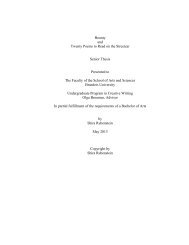Ezra Taft Benson and the State of Israel - Brandeis Institutional ...
Ezra Taft Benson and the State of Israel - Brandeis Institutional ...
Ezra Taft Benson and the State of Israel - Brandeis Institutional ...
- No tags were found...
You also want an ePaper? Increase the reach of your titles
YUMPU automatically turns print PDFs into web optimized ePapers that Google loves.
ga<strong>the</strong>ring. Some <strong>of</strong> those <strong>the</strong>mes include, as evidenced, rejection <strong>of</strong> Arab claims to <strong>the</strong>l<strong>and</strong>, particularly Jerusalem, <strong>and</strong> unequivocal support <strong>of</strong> <strong>Israel</strong> both for its role infulfilling prophecy, <strong>and</strong> <strong>the</strong> fact that it, by its very nature, seems to <strong>the</strong> writers toincorporate religion into politics.Four years later, as <strong>Benson</strong> took up his post as Secretary <strong>of</strong> Agriculture, many <strong>of</strong>those same elements would find <strong>the</strong>ir way into his observations <strong>of</strong> <strong>the</strong> fledgling state.Especially interesting are his views as presented in his 1957 <strong>and</strong> 1960 trips to severalcountries worldwide in promotion <strong>of</strong> PL 480. His reports on his visits to <strong>the</strong> Middle Eastreveal a sharp contrast to his perceptions <strong>of</strong> <strong>Israel</strong> versus o<strong>the</strong>r Middle Eastern countries.It is unclear whe<strong>the</strong>r <strong>Benson</strong> himself wrote <strong>the</strong> report, or dictated <strong>the</strong> basic elements tohis secretary; but at <strong>the</strong> very least <strong>the</strong>se reports are a clear general reflection <strong>of</strong> his ownsentiments. And his feelings seem to demonstrate, in comparison with those that heexpressed for his time in <strong>Israel</strong>, a general tone <strong>of</strong> practicality <strong>and</strong> pragmatism. In reality,he spends relatively little time commenting on his visits to <strong>the</strong> Arab countries. When hedoes comment, he reports on <strong>the</strong> cities visited <strong>and</strong> on <strong>the</strong> country's reception toward him<strong>and</strong> American agriculture (usually relating to Public Law 480). He is never disparagingto <strong>the</strong> leaders <strong>the</strong>mselves, whom he simply reports as having met, but he is likewise moreor less unenthusiastic.Likewise his description <strong>of</strong> <strong>the</strong> people <strong>and</strong> cultures he encounters in his visitsreveals him to be ra<strong>the</strong>r unimpressed. The most illustrative example is that <strong>of</strong> his 1957report on Jordan. He notes <strong>the</strong> guard <strong>of</strong> Jordanian soldiers that met <strong>the</strong>m at <strong>the</strong> embassy,as well as <strong>the</strong> frequent stops at military checkpoints, <strong>and</strong> comments briefly on <strong>the</strong>56





